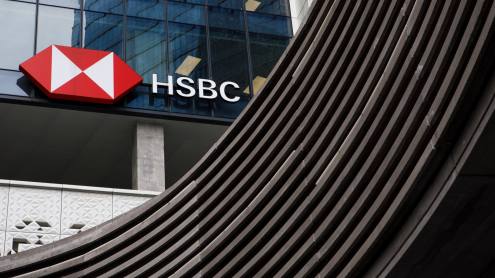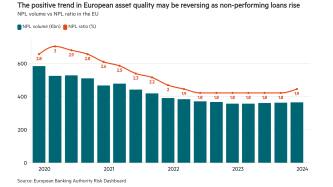Andrea Harrison, head of finance transformation at the Coventry Building Society, gives her perspectives on the balance between innovation while retaining a brick-and-mortar presence, possible challenges ahead and the building society’s upcoming priorities.
Q: What does ‘finance transformation’ mean to the Coventry Building Society (CBS)?
A: It’s not just about putting in new tooling: that’s the key thing for me from a finance transformation perspective. Technology is the enabler to transform. CBS is on a cultural journey to unlock the capability, the insight and the value that those tools offer, leveraging the systems and the data and the processes. While yes, it’s about reducing risk, and about being able to do things more effectively, it’s also about asking: what value does that unlock for the finance function? How can they leverage that data or those processes to really add more business value? That’s the journey that we’re on as an organisation.
Transformation in itself has really developed the team. Going on a transformation journey to make people’s roles more exciting has opened them up to talking to different organisations, really understanding what ‘good’ looks like and what can be possible. The process of transformation enriches people’s roles, which we’ve definitely seen at CBS.
Q: What are CBS’s general priorities for the remainder of 2023 and into 2024?
A: CBS has gone on a transformation journey. The first stage of that was replacing our aged systems with Workday financials in April 2023. We are continuing to recognise that it’s not a ‘one-and-done’, but that there is a lot more leverage than we can get from Workday. We’ve got the core system functionality in and everybody is now working with that new tooling, but we’re looking at activities that we can do to further enhance that. For example, we’re putting in the front-end procurement system, so that for all the sourcing and procurement we’ll have an end-to-end procurement and finance system, which will allow us to decommission some of our old technology. And then at the back end, we’re leveraging the Workday Adaptive functionality which allows us to plan and analyse our costs and forecast those — on cost and income — in a much more structured, less manual way.
We are unlocking the value from Workday alongside two other big pieces of transformation. First, the society is transforming its regulatory reporting. The regulator has been very clear that it’s expecting organisations to apply as much rigour over their regulatory reporting as they do their annual report and accounts. Therefore, we’re looking to automate a lot of that and we’ve got really clear data lineage from the core banking platform, all the way through to the end reporting outputs. The other big piece of work that we’re doing is transforming the treasury. It’s been under-invested over the past 20 years, with ageing systems and manual processes. This limits what we can do from a treasury perspective, so we want to unlock more capability.
We’ve got an exciting roadmap of activity ahead of us, and the executive and the board are committed to investing in our back office functions, which not a lot of organisations understand, particularly if they’re very focused on the customer-facing front end systems. CBS recognises that to meet its growth ambitions, investing in its back office technology is important too.
Q: How can building societies balance innovation with retaining a brick-and-mortar presence?
A: Like any firm, building societies need to properly respond to changes in consumer behaviour and the competitive landscape. Finance has an important role to play in terms of understanding consumer behaviour and how that drives value in the organisation, as well as being able to control costs and offer the most competitive deals for our customers. Technology enables lower-cost, easier consumer journeys and allows the organisation to retain good people. CBS knows that some customers still want and expect a human service, particularly when they’re making big decisions like buying a home or where to put their savings. For vulnerable or non-digitally savvy customers who need that support, the physical presence is still really important too.
As such, we value our branch network consisting of 64 branches. In 2021–22, we invested quite heavily in a branch redesign. We see our branches as a warm, welcoming hub for the community. CBS is very much about investing in the community, as well as investing for its members; it’s not just a place where someone comes to put money in their bank account, it’s a place where they feel welcome and receive human service. Digital is the way that organisations are going, but we want to be digital first, human always.
Q: How has CBS digitally transformed to manage two of their most important assets: people and money?
A: CBS is on a journey of digitally transforming our people. Hybrid working and homeworking have enabled that and CBS is passionate about maintaining a hybrid working environment. Obviously, that has not been without its challenges, but it works well for the society and we don’t impose mandatory office working. We are investing in new technologies throughout society, Workday is a great example of that. Not only have we put in Workday financials but we’ve also implemented the human resource functionalities. Every single employee within CBS interacts with Workday. That has improved lots of hygiene factors like annual leave and absence management, improved appraisals, and made us better able to manage talent across a growing organisation of 3000 people.
Read more
On the money side, CBS definitely hasn’t been a first mover on digital transformation; our approach has been more of a follower. As the technology is developed, we understand our customer needs and demands once we can manage the risk that’s attached to digital transformation, and also develop something that’s really impactful for our customers. We don’t want to be a front runner in terms of trying out that technology. In some other areas we have been more market-leading. For example, with digitalisation of our mortgage deeds and technologies around mortgage origination to improve our processes and risks. Shortly, we will be launching an app to put a branch in the pocket of our two million customers. We are definitely on that digital journey to transform the experience of our members as well.
Q: With CBS one of the UK’s largest building societies, what can be learned from its approach?
A: We’ve set ourselves apart through our very simple business model. CBS has a clear purpose: we are very focused on being the best at mortgages and the best at savings, for example. We are very clear about our focus as an organisation — our strategic focus — and we don’t get distracted from that. The fact that we manage our costs well has allowed us to be very competitive. And we attract great people in CBS because of the journey that we are on.
From a finance transformation perspective, we’ve been so successful because we’ve been laser-focused on outcomes. The purpose of transforming finance was not to put the new general ledger in, that wasn’t the outcome that we wanted. If we had just put a new general ledger in, we’d have probably just replaced like for like. What we wanted to do was achieve a quicker month-end close: from closing the ledgers on working day six or seven, we want to achieve a working day three close every month. This means the finance team can close a month-end and then spend the rest of the month adding value, looking forward and supporting the business, rather than performing manual processes. We were very clear in terms of what that needed to give us in terms of automation of controls, self service, reports and the ability to be able to slice and dice data. We were very focused on the outcomes, not the actual process of just putting technology in. That’s critical when you’re transforming functions: you’ve got to know where you’re going, what you want to achieve and be able to measure that.
Q: What trends or challenges do you foresee on the horizon?
A: Maintaining a low-cost operation is going to be really important. Other building societies are at different points of their journey in terms of investing in their back office technology, and maybe have some frailty and a need to invest heavily in that to be able to grow and be competitive. There are a number of challenges for us. Artifical intelligence (AI) and how we can leverage AI as an organisation is one, as well as where we are willing to draw the boundaries in terms of what we do with investment in data. We have lots of data within the organisation but unlocking that data capability — being able to pull that together and join the dots to add value — that’s a journey that we are on now. From a sustainability perspective, there are net-zero challenges that we want to achieve. And we’ve got an ageing customer base and generally an ageing population, which comes back to being digital first, human always, and making sure we attract and service a whole range of customers.
Q: How will CBS address upcoming challenges?
A: From a finance transformation perspective, it’s making sure that we’ve got robust foundations on which we can leverage the technology. We’re not in a situation where we were with the old general ledger that was implemented in the 1990s: it wasn’t looked after, and it wasn’t developed. Workday gives us the capability to unlock new functionalities, for example, optical character recognition, being able to scan information so that you don’t have to input data, and other opportunities to bring together different elements of reporting. More broadly, it’s a challenging market at the moment. It is important to lend responsibly to our customers, and be able to support customers through any financial difficulties that they see. It’s about offering our customers the best products and staying connected to our customer base as that changes over time.
We’re very proud that we set a target date to go live with the general ledger and achieved that date. We have been very ambitious in our transformation plans and we’ve achieved as a team, and that is something that has built a lot of confidence across the organisation in terms of our capability to be able to manage change on an ongoing basis. I feel a confidence within the finance team but also within the wider society that we’ve got good people, we’ve got a lot of capability within the organisation, and we’ve got a really exciting journey ahead.












